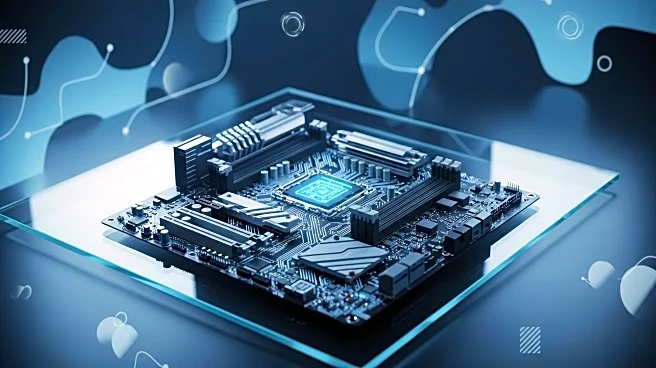What's Happening?
Intel has expressed concerns over the U.S. government's decision to acquire a 9.9% equity stake in the company, as announced by President Trump. This move is part of a deal involving previously committed grants under the CHIPS Act. Intel's regulatory filing with the Securities and Exchange Commission (SEC) highlights potential risks, including increased regulatory scrutiny and restrictions, particularly affecting its non-U.S. business operations. Intel's international sales, which constitute a significant portion of its revenue, could face challenges due to foreign subsidy laws and other regulations. The company also noted uncertainties regarding the timing and conditions of funding associated with the government's stake.
Why It's Important?
The U.S. government's equity stake in Intel represents a significant shift in industrial policy, potentially affecting corporate governance and international business relations. This move could lead to increased government influence over Intel's operations, impacting shareholder voting power and future business transactions. The decision has sparked debate over government involvement in private enterprises, with critics arguing it may lead to socialism-like policies. On the other hand, supporters view it as a strategic effort to strengthen domestic semiconductor manufacturing, crucial for national security and technological advancement.
What's Next?
Intel and the U.S. government will need to navigate the complexities of this new relationship, addressing regulatory challenges and ensuring the smooth execution of the funding agreement. Stakeholders, including shareholders and international partners, will closely monitor developments, particularly regarding Intel's ability to maintain its competitive edge globally. The Trump administration may continue to pursue similar deals with other companies to bolster U.S. industries, potentially leading to further debates on government intervention in the private sector.
Beyond the Headlines
The government's stake in Intel raises broader questions about the balance between public and private interests in critical industries. This development could set a precedent for future government investments in technology companies, influencing corporate strategies and international trade relations. Ethical considerations regarding government influence on business decisions and the potential impact on innovation and competition may also emerge as key discussion points.










